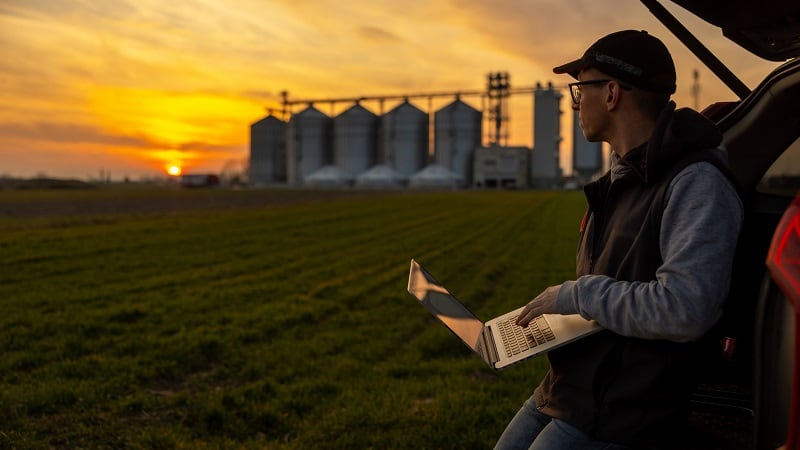Agtech innovation can bring about a sustainable and efficient food system, but the reality is many ground-breaking technologies struggle to go beyond the testing phase and into the field because providers fail to gain the trust of the most important person — the farmer — Jason Weller, global chief sustainability officer at JBS Foods, told AgTechNavigator.
Through his years as a sustainability leader — including working on Land O’Lake’s carbon reduction service Truterra — Weller has seen numerous agtech initiatives come and go, with many failing to live up to their hype. Weller works on projects to bring sustainable agtech solutions to the food producer’s supply chain, including a recent project to improve sustainable meat production in Brazil.
“Oftentimes in agtech, that last mile is the hardest. It is the chasm of death for innovation in agriculture, and a lot of companies have really impressive technology, great ideas, but they do not have a bridge over the chasm. They do not know how to get it to the farmer. I have also seen a number of innovations in agtech, where it is a ‘field of dreams’ concept, where they build a beautiful platform — really impressive technology — and no one shows up," Weller elaborated.
Building a bridge over the chasm requires farmers’ trust
First and foremost, agtech companies must offer clear and concise explanations of how their technology can positively impact farmers’ businesses, Weller explained. Many growers “have big operating notes” and depend “upon the vagaries of markets and weather to produce their product, whether it is livestock or crops,” Weller noted.
The tech industry’s motto of “fail fast” also does not translate to the field because ‘for farmers, fail fast is fail forever,” Weller said. Instead, agtech providers must work to build farmers’ trust to better understand their pain points, he added.
“Working with someone you trust, who has a good reputation, who understands livestock or crop agronomy or soil science, [and] who understands your farm and can help you adopt the technology for your farm is so critical for technology adoption,” Weller elaborated.
He added, “Adoption is very hard for new technology because the current technology is proven — it works — and their farm has been using it for decades. You really need to help [farmers] understand why this new innovation is going to make them more profitable.”
Tracking Brazilian livestock in real-time with agtech
JBS is working alongside technology companies and government agencies on a program designed to boost sustainable meat production in Brazil, demonstrating the importance of gaining farmers’ trust to empower sustainable change.
Last month, the food producer invested more than $7 million in cattle traceability for small ranchers in the Brazilian state of Pará, as part of a public and private partnership in Brazil called the Traceability Accelerator Program, according to a press release on the announcement. Per the program, 2 million ear tags and 175 readers were donated to help producers track and monitor livestock health.
“Adoption is very hard for new technology because the current technology is proven — it works — and their farm has been using it for decades. You really need to help [farmers] understand why this new innovation is going to make them more profitable."
Jason Weller, global chief sustainability officer at JBS
JBS invested in this program to ensure its meat is not supporting illegal deforestation, while also allowing the food producers to monitor the health of animals, Weller explained.
“We really do not want to have farmers and ranchers that we source cattle from be implicated or involved in illegal deforestation activities or other natural resource conservation or social concerns,” Weller elaborated.
He added, “We have a very sophisticated, advanced remote sensing technology system that we are daily monitoring hundreds of 1,000s of square kilometers, hundreds of 1,000s of square miles of land that are involved in raising cattle that are part of our supply chain.”
The food producer needed to partner with other stakeholders to ensure they were deploying the right technologies to address Brazilian ranchers’ needs, Weller noted.
“By and large, we are not out in the countryside working with livestock producers on how to enhance their animal husbandry skills. We are a food company. I say all that because partnerships are the foundation for how we advance a more sustainable and resilient food system,” Weller emphasized.




